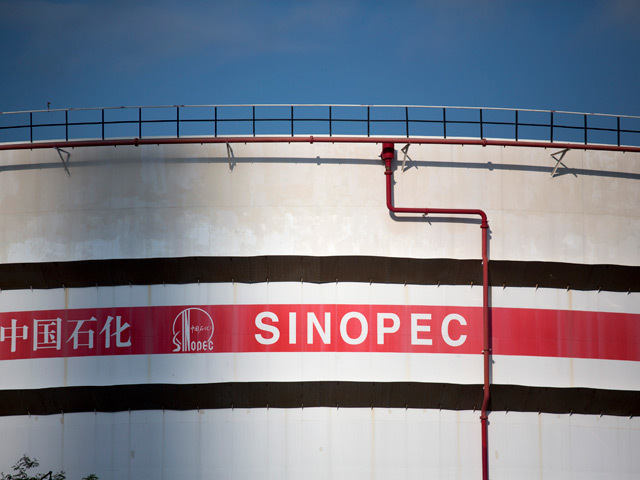
China Petrochemical Corp, parent of Asia’s largest oil refiner, raised $5 billion from the biggest offering of dollar-denominated notes by an Asian issuer in more than a decade.
The Beijing-based state-owned enterprise, known as Sinopec, sold notes with three-, five- and 10-year maturities, matching the amount issued in November 2003 by Hutchison Whampoa Ltd, the Hong Kong conglomerate controlled by Li Ka-shing, Asia’s richest man.
Investors in the U.S. bought 70 percent of Sinopec’s three-year fixed-rate notes, according to a person familiar with the matter.
Sinopec Group’s sale increases dollar issuance by companies from Asia outside Japan to $6.25 billion in April, already more than in all of March, when concern that slowing growth in China would accelerate debt repayment difficulties after the nation’s first onshore bond default damped demand.
Yields on U.S.- currency bonds sold by Chinese borrowers rose to 6.12 percent on March 20, the most in six months, before falling to 5.9 percent as of yesterday, Bank of America Merrill Lynch indexes show. Globally companies pay 2.87 percent.
“Sinopec as a name is definitely becoming more international, which explains the number of U.S. investors buying into the deal,” said Anthony Leung, a Hong Kong-based analyst at Nomura Holdings Inc.
“The company sold bonds with shorter tenors and also some floaters, which is not surprising considering the worries about U.S. interest rate hikes.”
Federal Reserve Chair Janet Yellen said last month that borrowing costs could rise “around six months” after the U.S. central bank’s monthly bond purchases end.
Sinopec Group issued $1.5 billion of three-year floating-rate securities at 78 basis points more than the three-month London interbank offered rate and $1.25 billion of fixed-rate notes of the same tenor at 90 basis points more than Treasuries, data compiled by Bloomberg show.
The company also sold $750 million of five-year fixed-rate debt at 100 basis points more than Treasuries and $500 million of floating-rate debentures due 2019 at a 92 basis-point spread over Libor. In addition, investors bought $1 billion of 10-year bonds at 160 basis points more than government debt.
The Markit iTraxx Asia index of 40 investment-grade borrowers outside Japan slid by 2 basis points to 121 basis points as of 8:06 a.m. in Hong Kong, after closing at its lowest level since Sept. 23 yesterday, Australia & New Zealand Banking Group Ltd. prices show.
The Markit iTraxx Australia index slipped 0.3 basis point to 98.5 as of 11:45 a.m. in Sydney, according to Citigroup Inc. prices. The gauge has fallen 4.7 basis points this month after gaining 1.2 basis points in March, according to CMA, which is owned by McGraw-Hill Cos. and compiles prices quoted by dealers in the privately negotiated market.
The Markit iTraxx Japan index was little changed at 83 basis points as of 9:04 a.m. in Tokyo, Citigroup prices show. The index is holding at its lowest level since March 19, CMA data show.
Credit-default swap indexes are benchmarks for insuring bonds against default and traders use them to speculate on credit quality. A drop signals improving perceptions of creditworthiness, while an increase suggests the opposite.
The swap contracts pay the buyer face value in exchange for the underlying securities if a borrower fails to meet its debt agreements.